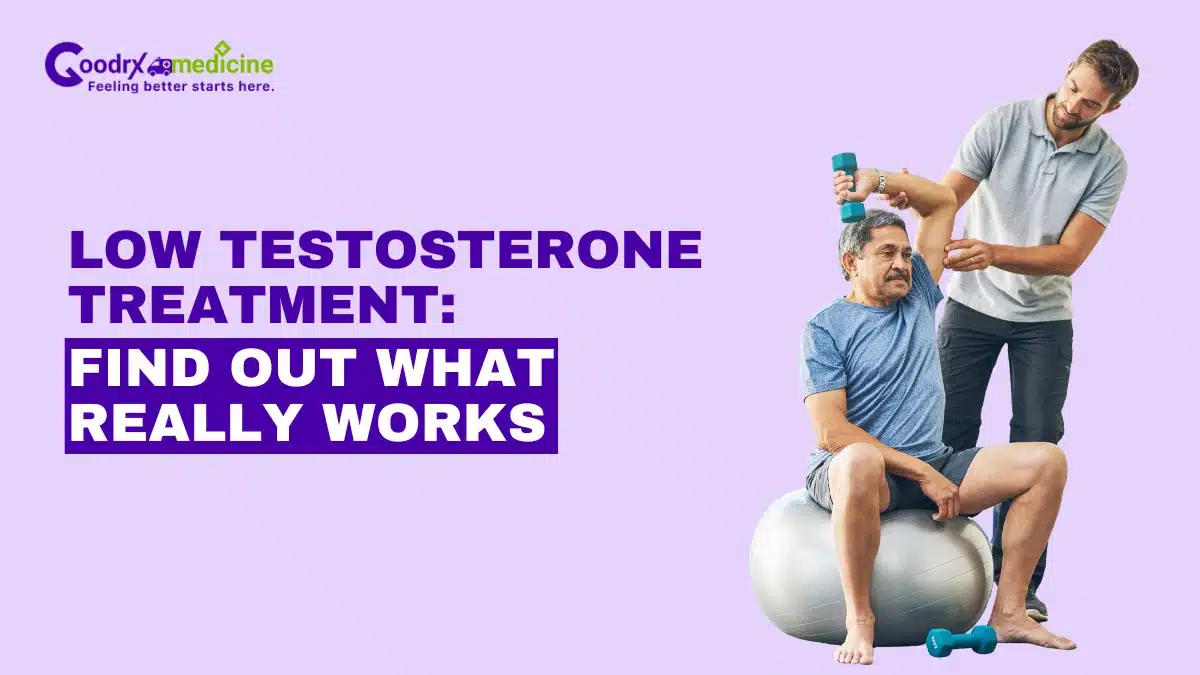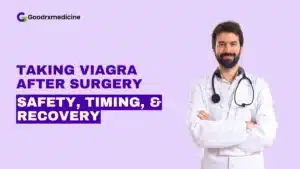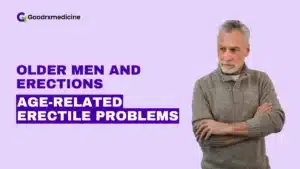Low Testosterone, or Low T, can bring unwanted changes in your daily life and overall well-being. You may experience symptoms like fatigue, low libido, mood changes, and reduced muscle mass. Treating such symptoms is essential for a better quality of life.
Advancements in medical science have made it possible to manage Low Testosterone with various approaches, including medications, lifestyle changes, natural supplements, and therapies. Choosing the right option will give you the desired results for a healthier life.
This article focuses on such options of Low Testosterone Treatment, including clinically approved Testosterone Replacement Therapy (TRT) and natural or holistic remedies, to help you better understand the best approach for your needs.
Low Testosterone treatment options
Several effective treatments for Low Testosterone are available, depending on individual needs. This can include doctor-prescribed medications and therapies such as Testosterone Replacement Therapy (TRT), or a more holistic approach with lifestyle changes and taking herbal supplements.
Let’s look into these options in detail.
Save up to 90% on your medicine bills
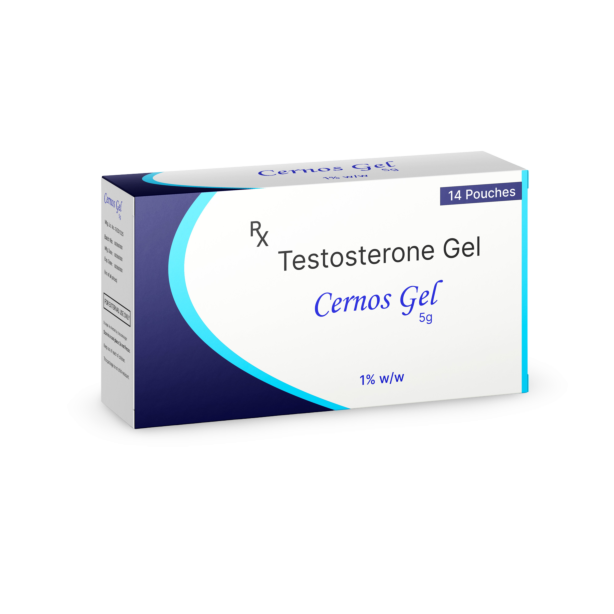
Cernos Gel 1% w/w
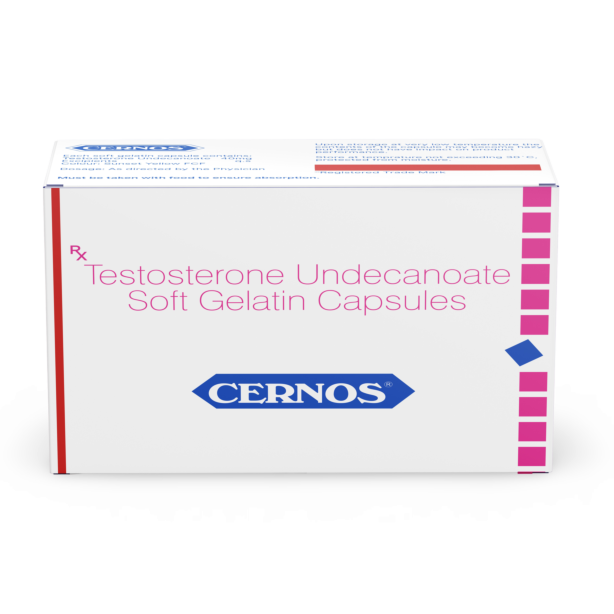
Cernos 40 mg Soft Gelatin Capsule
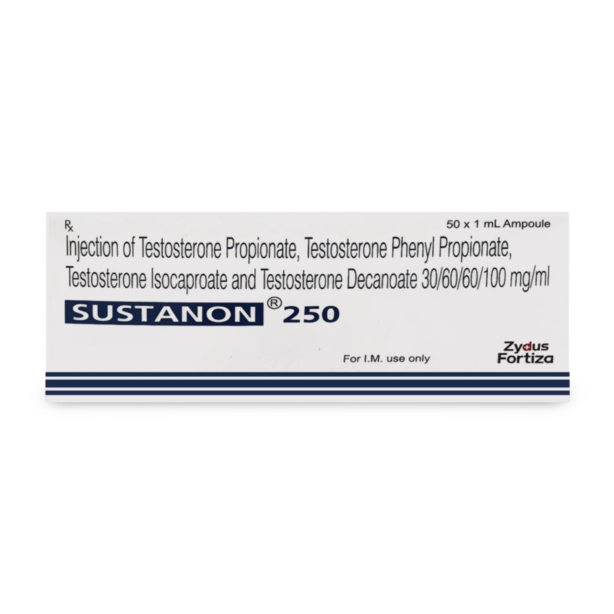
Sustanon 250 Injection
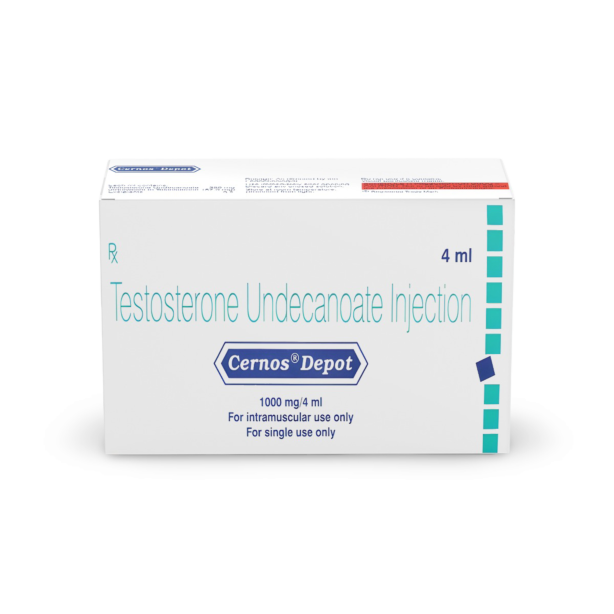
Cernos Depot 1000 mg Injection
Prescription medications for Low Testosterone
Prescription medications for Low Testosterone include FDA-approved hormone-stimulating agents, which are prescribed for men with clinically diagnosed Low Testosterone caused by conditions such as primary or secondary Hypogonadism, rather than normal age-related decline. These medications are:
Clomiphene Citrate
It is an oral Selective Estrogen Receptor Modulator (SERM) that boosts Testosterone levels by blocking estrogen signals in the brain. It encourages the body to release more hormones that tell the testicles to make more Testosterone.
Human Chorionic Gonadotropin (hCG)
It works like a natural hormone that tells the testicles to produce more Testosterone, thereby naturally boosting Testosterone levels.
Aromatase Inhibitors
It stops Testosterone from being converted into Estrogen. With lower Estrogen levels, the brain signals the body to make more Luteinizing Hormone (LH) and Follicle-stimulating Hormone (FSH), boosting Testosterone production in the testicles.
Testosterone Replacement Therapy (TRT)
While medications are available to stimulate hormone production, Testosterone Replacement Therapy (TRT) remains the primary treatment for men with clinically diagnosed Low Testosterone.
It involves adding external Testosterone to elevate this hormone’s levels. This therapy helps relieve symptoms of Low T, such as fatigue, low libido, decreased muscle mass, mood changes, and reduced bone density.
Before starting with the treatment, it is essential to have a proper diagnosis of Low T. Your doctor will run appropriate tests to determine its cause. The FDA has not cleared TRT for Low T treatment without any associated medical condition.
Different forms of Testosterone Replacement Therapy
TRT is available in several forms, allowing flexibility based on patient preference and clinical considerations:
- Injectable Testosterone
- Topical gels and creams
- Transdermal patches
- Pellet implants
- Oral capsules
- Buccal tablets
However, it may cause side effects like acne, breast tenderness, Sleep Apnea, fluid retention, increased red blood cell count, cholesterol changes, and Prostate issues. Always consult a doctor to weigh the benefits and risks.
Holistic treatment for Low Testosterone
The holistic or natural approach in treating Low Testosterone focuses on lifestyle, diet, stress management, and certain supplements rather than prescription medications. These strategies support your body’s Testosterone production and overall hormonal balance.
Lifestyle and behavioural changes
Before opting for medications or supplements, bringing changes in one’s lifestyle can have a positive impact on naturally supporting Testosterone levels.
- Exercise regularly: Both weight training and cardio can boost Testosterone. Weight loss, especially reducing abdominal fat, is closely linked to improved Testosterone levels.
- Get quality sleep: One should try to get 7 to 9 hours of sleep, as Testosterone is mainly produced during deep sleep cycles.
- Manage stress: High stress raises cortisol, which can affect Testosterone. Practicing mindfulness, meditation, and relaxation techniques is beneficial.
- Limit alcohol and avoid smoking: Excess alcohol and nicotine intake disrupt hormone production and can lower Testosterone.
Diet and nutrition
Certain foods, primarily those rich in carbohydrates and saturated fats (pro-inflammatory diets), are associated with lower Testosterone and a nearly 29.6% higher risk of Testosterone deficiency.
This is partly due to inflammation and obesity, which reduce Testosterone production. Thus, a nutritious, balanced diet (like the Mediterranean), with healthy proteins, fats, and complex carbs, is fundamental for supporting healthy Testosterone levels and overall hormonal well-being.
Herbal supplements
Supplements, herbs, and natural remedies are often explored as supportive approaches for maintaining or boosting Testosterone levels, especially with mild deficiencies or lifestyle-related hormonal imbalances. Popular supplements include:
Zinc
It plays a key role in testosterone production, especially for individuals with a deficiency. Taking zinc supplements may help restore normal hormone levels in those with low zinc levels.
Ashwagandha
Known for its stress-reducing effects, Ashwagandha may also support hormonal balance. Some research suggests it could help boost Testosterone levels in certain men.
Fenugreek
Studies have shown that this plant may help enhance energy, sex drive, and muscle strength, potentially having a positive effect on Testosterone levels.
Vitamin D
Low vitamin D levels are usually associated with reduced Testosterone. Supplementing with vitamin D may help raise testosterone levels if you’re deficient.
Conclusion
Low Testosterone treatment can be a significant relief for men suffering from Low Testosterone. The proper treatment depends on individual needs, symptoms, and medical guidance.
It can include therapies like Testosterone Replacement Therapy (TRT) and hormone-stimulating medications, as well as natural approaches such as lifestyle changes like regular exercise, stress management and herbal supplements like Zinc and Ashwagandha.
While TRT remains the gold standard for diagnosed cases, holistic options can offer meaningful support. Consulting a healthcare professional is essential to determine the safest and most effective approach to restoring hormone balance and improving overall quality of life.

Frequently Asked Questions
Is there any good over-the-counter medication for treating Low Testosterone?
No, effective over-the-counter (OTC) medications are not approved to treat Low Testosterone. OTC supplements like Fenugreek, Zinc, or Ashwagandha may sometimes support hormone health, but results are inconsistent and not a substitute for prescription therapy. Always talk to a healthcare provider for proper diagnosis and treatment.
Can I live with Low Testosterone?
Yes, you can live with Low Testosterone, but it may significantly impact your quality of life depending on the severity and underlying cause. Untreated low testosterone can decrease quality of life, particularly by affecting sexual health, vitality, and physical and emotional well-being.
How to check the Testosterone level?
To check Testosterone levels, get a blood test, preferably in the morning, around 7–10 AM, when levels peak. The test measures total and sometimes free Testosterone. Results are analyzed in a lab. Consult a doctor for accurate testing and interpretation. Repeat testing may be needed.
Can I check my Testosterone at home?
Yes, you can check Testosterone at home using test kits that typically require a finger-prick blood sample or saliva. However, home tests may be less accurate and vary in results compared to laboratory blood tests. Confirm abnormal home results with a healthcare provider for a reliable diagnosis and treatment.
When referencing outside resources, GoodrxMedicine always provides full citations. To learn more about the measures we use to maintain the quality of our content, please review our Content Information Policy.



